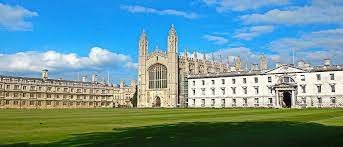From the Mandela Rhodes Scholarship, to the South African-German Centre for Development Research Scholarship, to the Oppenheimer Memorial Trust Scholarship, there are numerous opportunities for students to receive fully funded scholarships in South Africa.
Each program offers a different set of benefits, so it’s important to carefully consider which one is the best fit for your needs. Whether you’re looking to study in South Africa or overseas, there are options available to help you achieve your academic goals
Funding for postgraduate studies in South Africa
Studying at the postgraduate level can be a significant investment, and while South Africa provides top-quality education, it’s not immune to the costs. Fear not, South Africa is home to a plethora of scholarship options specifically catered for postgraduate studies.
Eligibility:
- South African citizenship or permanent residency: You must be a South African citizen or hold permanent residency status.
- Demonstrated financial need: Financial need plays a crucial role in selection. Provide convincing evidence of your financial circumstances.
- Academic excellence: Strong academic results, such as outstanding undergraduate results or relevant research experience, are essential.
- Chosen field of study: The MSF prioritizes studies aligned with national development goals, including science, engineering, healthcare, education, and business.
- Commitment to social development: Demonstrating a commitment to contributing to South Africa’s social development will significantly strengthen your application.
Application process:
- Contact university financial aid offices: The MSF nomination process takes place through university financial aid offices. Reach out to your chosen university’s office for specific application details and deadlines.
- Required documents: Typically, applications include motivation letters, financial statements, academic transcripts, letters of recommendation, and proof of identity and citizenship.
- Selection criteria: Selection committees consider academic merit, financial need, commitment to social development, and alignment with program priorities.
However, remember, with great scholarships, come great requirements. A shining academic record is your passport to being considered.
Joint Japan World Bank Graduate Scholarship Program
Have you ever dreamt of being a global scholar, traveling between continents, and contributing to your home country’s development? Well, the Joint Japan World Bank Graduate Scholarship Program could make this dream come true. It’s a one-of-a-kind opportunity for students hailing from World Bank member countries, allowing them to pursue master’s degrees in development-related fields at leading universities worldwide, including the vibrant educational landscape of South Africa.
Eligibility:
- Citizenship: Open to citizens of eligible developing countries and Japan. You can find the updated list of eligible countries on the World Bank website.
- Professional experience: Possess at least 3 years of recent development-related work experience after earning a Bachelor’s degree.
- Employment: You must be employed in development-related work in a paid full-time position at the time of submitting your scholarship application.
- Academic background: Hold a Bachelor’s (or equivalent) degree earned at least 3 years prior to the application deadline.
- English language proficiency: Demonstrated proficiency in English is required, typically through standardized tests like TOEFL or IELTS.
Application process:
- Application window: Typically opens in February and closes in April for Japanese nationals, and opens in June and closes in August for developing country nationals. Check the World Bank website for specific dates for your nationality.
- Application materials: Required documents might include:
- Completed application form.
- Official transcripts and certificates from all attended institutions.
- Three letters of recommendation, at least one from a supervisor or employer.
- A curriculum vitae (CV) or resume.
- A personal statement outlining your career goals and how the scholarship would help you achieve them.
- English language proficiency test scores (if applicable).
- Proof of citizenship and employment.
- Submission: Applications are typically submitted online via the World Bank website: https://www.worldbank.org/en/programs/scholarships/jj-wbgsp
Here’s the catch – the program seeks candidates with a strong commitment to their country’s development.
FAQS
Can international students get scholarships in South Africa?
Yes, absolutely! While most funding opportunities prioritize South African citizens, numerous scholarships are available for international students wishing to study in South Africa. These include programs offered by:
- Government agencies: NRF postgraduate bursaries, Mandela Scholarship Fund, etc.
- Universities: Many universities have dedicated scholarship programs for international students.
- Private organizations: Companies and foundations offer scholarships in specific fields or for students from certain regions.
How do you get a 100% scholarship?
There’s no guaranteed formula, but these tips can increase your chances:
- Excel academically: Strong grades, research experience, and academic achievements are key.
- Choose the right scholarship: Align your goals, field of study, and background with specific programs.
- Craft a compelling application: Highlight your strengths, research potential, and career aspirations.
- Meet deadlines: Be prompt and thorough in submitting all required documents.
- Proofread carefully: Ensure your application is error-free and meets all formatting guidelines.
- Expand your options: Apply to several scholarships to increase your chances of success.
Remember, 100% scholarships can be highly competitive, so focusing on your overall academic profile and tailoring applications to each program go a long way.
What grades do you need to get a scholarship in South Africa?
Exact grade requirements vary based on the specific scholarship program. However, strong academic performance is generally expected, often with minimum GPA requirements. Aim for high grades throughout your studies to be a competitive candidate.
How to apply for a high school scholarship in South Africa?
Various scholarship programs target high school students in South Africa. Common application processes include:
- Contacting your school: Many schools administer scholarship programs or provide information on available opportunities.
- Researching online: Explore government websites like https://www.education.gov.za/ and scholarship databases like https://www.scholarshipportal.com/ for high school scholarships.
- Reaching out to specific programs: Contact the organizers of relevant scholarship programs directly to inquire about eligibility and application procedures.
How can I get a scholarship to study in South Africa?
Start by considering your academic goals, field of study, and nationality. Then, follow these steps:
- Research scholarship options: Explore government websites, university websites, and scholarship databases to find relevant programs.
- Check eligibility requirements: Ensure you meet the criteria for your chosen scholarships.
- Prepare your application materials: Gather transcripts, certificates, recommendation letters, and any other required documents.
- Craft a compelling personal statement: Showcase your strengths, aspirations, and how the scholarship aligns with your future plans.
- Meet deadlines: Submit your applications well before the deadlines.
- Seek guidance: Don’t hesitate to reach out to university financial aid offices
Conclusion
The journey to achieving academic excellence doesn’t have to be marred by financial constraints. Fully funded scholarships in South Africa offer a beacon of hope, inviting you to pursue your aspirations without worry. From the National Research Foundation catering to research enthusiasts, to scholarships specifically designed for postgraduate studies, South Africa’s educational landscape is brimming with opportunities.
So, dare to dream, and don’t let financial hurdles deter you. Remember, these scholarships are much more than monetary aids; they’re tickets to invaluable experiences, lifelong learning, and an unquenchable thirst for knowledge. As we conclude, let’s reiterate: your academic journey is worth every effort. And in South Africa, with these fully funded scholarships, your dreams are well within reach.






